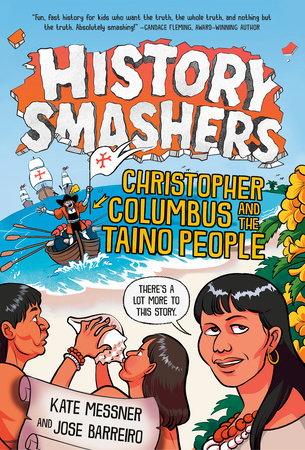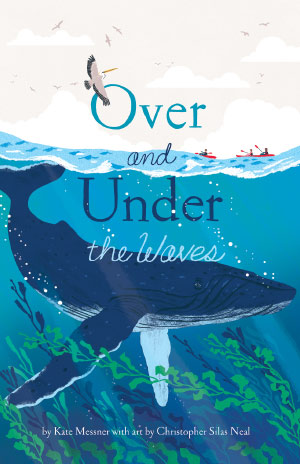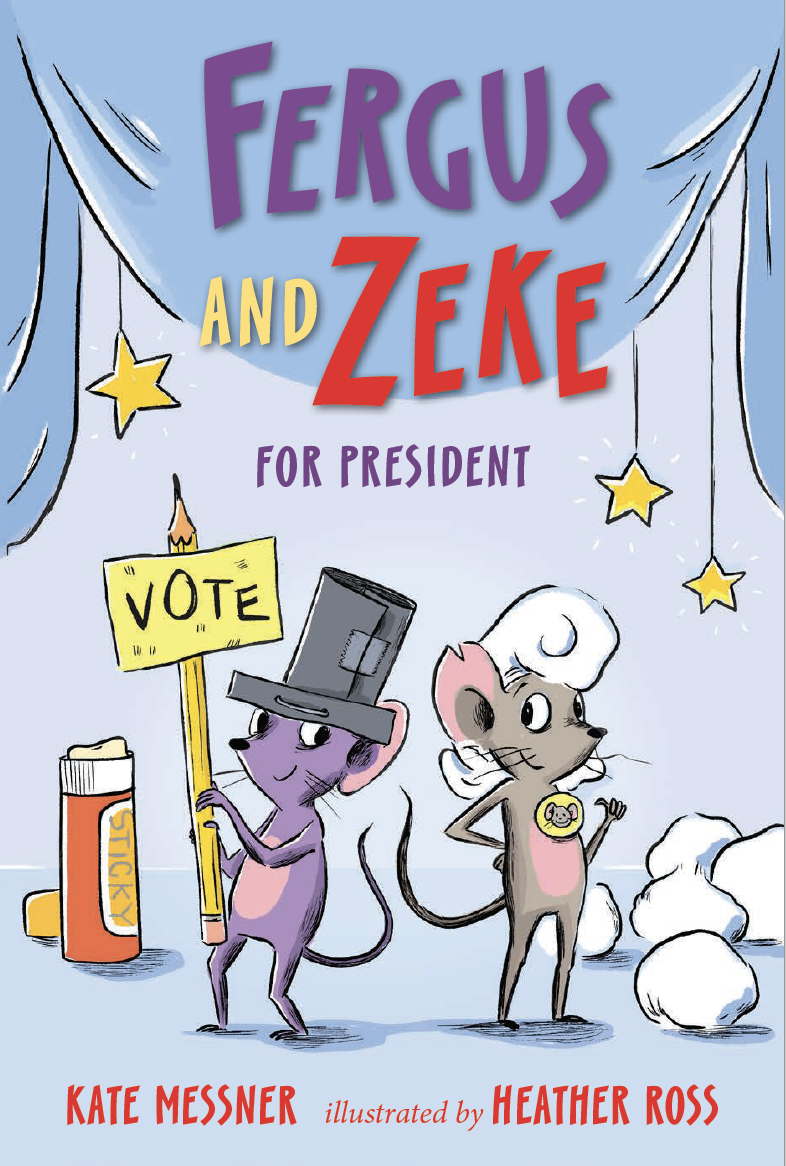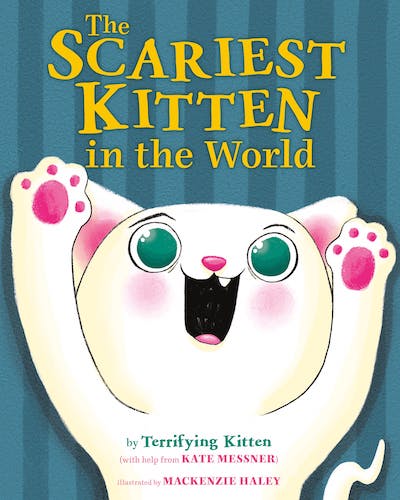Got questions about writing? Wednesday is always Q and A Day at Teachers Write! Virtual Summer Writing Camp. Today’s guest authors are Sarah Albee and Lynda Mullaly Hunt!

Teachers & librarians – Feel free to ask your questions in the comments. It’s fine to ask a general question or to direct one directly to a specific guest author. Our published author guests have volunteered to drop in and respond when they can.
Guest authors – Even if today isn’t a day you specifically signed up to help out, feel free to answer any questions you’d like to talk about. Just reply directly to the comment.
Note from Kate: I try to be here for Q and A most Wednesdays, too. Please be patient with me if you’re a first-time commenter – it may take a little while for me to approve your comment so it appears.
Got questions? Fire away!





Good morning, everyone! So happy to be here today, especially with my friend, Lynda. She and I have been writing buddies for a few years now. Lynda writes fiction, and I write (mostly) nonfiction, but I am happy to answer any and all questions you might have. Thanks, as ever, Kate!
Hi Sarah! Good morning Lynda. Thank you both for being here.
This week I’ve been bogged down a bit. I’m nearly done with my first draft, but I’m a bit torn on whether one of my plot points (tangents?) adds to the story, or whether I ought to develop the alternate version I’ve been considering.
At what point would you suggest I pass it to my beta readers for feedback? I’m going to polish and revise it before I send it out to them, but I’m wondering if I wait for their reactions before I hack out this section and rewrite.
Again, I’m torn. I’m not sure if it makes the story more solid – brings the whole thing back around to the start – or if it is just implausibly stretched.
Thank you for your response.
Hi Terry,
My strategy, when I’m stuck like that, is to walk away for a day or two or three. I work on something completely different, even in a different genre, and try not to think about that project. Then when I return to it, I feel like I can assess the story much more objectively. Half the time I think “what was I THINKING?” and cut the scene/subplot. The other half of the time I think “Hey, this is pretty good. Mom was right–I AM a genius!” It’s amazing how time heals many plot troubles.
Thank you!
Ditto on what Sarah said. 🙂 In terms of sharing with beta readers, many writers I know polish things up before submitting, but I don’t tend to do that. I’d prefer readers see it when it’s in a little rougher shape. It helps me map out the book, solidify characters, and generate ideas.
In your situation, I would probably give it to my readers with both endings and get feedback. But, then I’d sit with it and, as the book progresses, wait to see which one feels right. But, save the ending you don’t use! Rewriting the last chapter was the final step of writing FISH IN A TREE. Good luck! 🙂
Hey, Terry,
I know that a lot of other writers choose to wait until their writing is polished. But, most of the time, I choose to share an early draft. It helps me solidify plot, characters, and generate ideas. It takes trust to share early drafts—but that’s what critique groups are all about. If you don’t trust your group, it isn’t going to be nearly as helpful.
If I were in your position, I would share both endings with my readers and ask them which one they prefer and why.
However, don’t delete the ending you don’t use—tuck it away in another file! The very last thing I did while writing FISH IN A TREE is completely overhaul the ending.
Also, if there are sections you’re not sure about, leave them in and don’t flag them for your readers. I think it’s important beta readers go into reading a project with no background info, etc. After all, your future readers will approach it that way.
Good luck!
Lynda
Thank you!
Ditto on what Sarah said. In terms of sharing with beta readers, many writers I know polish things up before submitting, but I don’t tend to do that. I’d prefer readers see it when it’s in a little rougher shape. It helps me map out the book, solidify characters, and generate ideas.
In your situation, I would probably give it to my readers with both endings and get feedback. But, then I’d sit with it and, as the book progresses, wait to see which one feels right. But, save the ending you don’t use! Rewriting the last chapter was the final step of writing FISH IN A TREE. Good luck!
Hey, Sarah! So happy that we are scheduled here together. I wish we could hang out in person but this is the next best thing. 🙂
Hey, Sarah!
So glad we are here together answering questions. I’d rather hang out in person, but this is the next best thing 🙂
Good Morning!
Thank you both for being here. I am an embarrassment of a middle school librarian completely dazzled by the writers willing to drop by and share time. It’s really like a rock concert for me.
My questions are about non-fiction and fiction pairings. This seems to be an old idea made new again with new learning standards. And, since I’m wordy….I’ll label my questions so that you can skim! I seem to be a gush-er in TW.
Q: When writing non-fiction…..are there ever any stories in your head that \”go along\” with what you are writing? Do some stand out that you recommend?
The reason behind my question above is that many….maybe even most…are challenged in every way you can think of. When I introduce fiction stories, many are short on background knowledge. I turn to my easier to read hi-lo non-fiction books for support. Some of my favorite books that I recommend are non-fiction that “read like fiction”.
Q; true/false? I picture things being different for non-fiction writers…that they read non-fiction books for research … that it would be easier for a fiction writer to point to non-fiction books that pair with their fiction stories.
I will be introducing One for the Murphys to my students in just a few weeks. I will be supporting reading that book with other related books and read-alikes.
Q: What inspired you to write this story and what reading would you point MSs who fall in love with this book toward? Any non-fiction titles come to mind? It’s a pretty serious subject …. And likely close to home for some of my students.
Gush: And, thank you for the very detailed Teacher’s Guide to One for the Murphy’s. The truth is, a lot of my students find reading a challenge…..books seem too big, too overwhelming. I often see them start a book with enthusiasm and then find it in the book drop returned the same day. So, I use Teacher Guides to get students into a book or further along in the story than they would get on their own. Teacher Guides also help me connect with the classroom teachers. Thank you!
Hi Linda:
To answer Q1: I don’t start out thinking about how a fictional story might pair with an idea I have for a book. And yet, because of the nature of what I write (world history, from ancient times to the present!!) I feel pretty confident there will be lots to pair with it! Q2: You’re probably right that fiction writers have a slight advantage in being able to point to/pair up with nonfiction. And yet, I read tons of fiction as well, as an adjunct to my research (besides just for pleasure). As a kid, I learned more history from fiction than from my dull, dry textbooks. (Tale of Two Cities, Little House on the Prairie, A Little Princess, and, later, Catherine, Called Birdy, etc etc. Q3: I will punt that to Lynda!
Hey Linda!
Your words are very sweet – thank you. I assure you that I’m far from dazzling as I’m sitting here with my hair a mess and wearing my husband’s old t-shirt. Thank goodness for you all that this isn’t video.
Sarah Albee is a genius at writing nonfiction that “reads like fiction.” Actually, Sarah’s new book, BUGGED: HOW INSECTS CHANGED HISTORY pairs with my forthcoming novel, FISH IN A TREE because of a character named Albert. Sarah actually inspired him.
I cannot come up with any nonfiction titles for kids that would connect well to ONE FOR THE MURPHYS. There are memoirs written by former foster children, but they’re largely for adults. If I can think/find anything, I’ll come back to this thread and post.
What inspired me to write the story? Actually, it was a conversation I had with my son about Star Wars. At that time he was obsessed with the movie and there was little else we talked about. I was thinking about Luke Skywalker and how he finds out who his father is. He’s very happy to find out was father is but he’s also very unhappy, too. I began to think about a character that longed for something but also wished the very same thing away. Carley Connors was born soon after that.
I am so glad that you find the Murphys teachers guide helpful. I’ve never heard of a teacher using it to inspire reading – seems brilliant to me!
Thank you!
Lynda
Good morning Sarah & Lynda!
My question this morning is one I have been sitting with for awhile now, and it’s probably more for Lynda. I’m finding that one obstacle that turns up in my writing from time to time is feeling too close or too attached to my characters. They are-of course-developed with some characteristics and qualities with which I’m familiar, and sometimes I skip days with their story because I don’t want to “keep their company.” It’s not that I don’t like my characters-I know I can change them if/when I need to. I think the personal connection to the characters creates a realistic story, but do you have strategies for keeping distance or handling those writing days when the characters might feel too close to home?
Sarah, the question about characters may be fiction-specific, but do you ever find in your non-fiction that you need to slow down or take breaks from your research/writing because the topic is too close to your personal interests/passion? (Or, is it-as I would imagine-a driving motivation?)
Does anyone else encounter this?
Hi Melissa,
On the contrary–I intentionally choose subjects that I am passionate about. There’s nothing more thrilling for me than to know when I wake up that I have a full, uninterrupted day of research/writing ahead of me. There are days I spend at the library where I forget to eat lunch/get a drink of water all day–I think athletes call it being in “the zone.” Writing is hard enough when you love what you’re writing about–it can be excruciating if you have to work on something you’re not psyched about (and I’ve certainly had my share of those assignments!)
And, being married to a teacher who really stresses writing with his students–I see the importance of allowing students to have a say in what they will research/write about.
Hey, Melissa!
There was a time when I felt like you and I would need breaks and shy away from my writing—because it would become overwhelming to live through my characters and their experiences. Sometimes, it would make me sad and bleed into my real life.
However, I came to a point when I realized that loving and being too close to our characters is an asset. I think when you feel that attachment—really care about them as if they live and breathe—that it comes through in the writing. So, I think it’s difficult but I think you should embrace it. Personally, I found that stepping up to things I wished to avoid actually helped me deal with them. I began to understand my characters better—and myself. All writing benefits aside, I found it healing. Win-win. However, you do have to be ready for it.
That said, it is also important to keep your writer’s hat on. Sticking to real life does not always serve the story or your characters. But, authentic emotion is gold.
Good luck!
Lynda
Good Morning-
First of all, I am so inspired by all of you at TW- your posts seem to zero in on exactly what I need at the time. It’s been perfect 🙂 I constantly find myself going back to posts, even from last year’s camp, and find the detail(s) that help me move along. There are so many great mini-lessons for my students in the future.
So, on that note, I’m sorry I’ve missed the last week of camp and if these questions were asked previously, just let me know.
Q1- How do you come up with character’s names? I find that I write in my drafts “john doe” and “jane doe” (placemarkers) etc. just to keep writing until I find the right name. But at some point, the name builds the character. Do you use a particular tool or writing prompt to help you find the perfect name?
Obviously, I’m struggling with names this year. It might be a teacher thing- I had a difficult time naming my own kids because after teaching for years, you have hundreds of names that you’ve encountered, some good and some not so good. There are certain names that will never work… I might be over-thinking.
Q2- How do you keep track of your queries? I know that some people use their own spreadsheets, some use querytracker. Just wondered what is the easiest way to keep track of what’s coming and going.
Thank you in advance for your advice. 🙂
Hey, Andrea,
I’m so happy that you find TW so helpful. It’s pretty awesome–I wonder if Kate had any idea when she began all of this. 🙂
All of my main characters are named after an ancestor. So that is easy.
For secondary characters, I sometimes search baby naming sites. You can search for meaning or ancestry. For me, I think a name just ahs to sound right. Feel right. I try it on for a few days. Some characters have had as many as three names.
I also have a document for names I like. If I hear one that strikes me (article, movie, etc.), I write it there. When trying to come up with names I sometimes shop there for one.
In terms of keeping track of queries, I am an old-fashioned girl. I made paper charts and wrote thing in by hand. I’d keep the chart under my blotter and pull it out to update. If I were querying now, I may try something like querytracker, though. It seems to work well.
Thanks for the question!
Have a great day
Lynda
Andrea, thank you for asking this question. I’m struggling with naming a main character and have wondered what other writers do.
P.S. don’t want to hog the forum, but I also wondered which blog platform you use/like better and why? (I’ve used blogspot for school and am setting up a wordpress account for writing.)
I used to use Blogger, but I found formatting pictures to be a pain. I use WordPress now and am pretty happy with it.
Hi Andrea,
I don’t know if you are familiar with Scrivener, but it has a really cool “name generator” option. You can narrow it down by gender/nationality/syllable count, etc. Sometimes I play with it even when I don’t need a character name.
For blogging–I use WordPress. When I get stuck, I have computer people I can consult, but it’s pretty user friendly.
Hi Lynda and Sarah,
Thank you both for taking the time to answer our questions. I really appreciated your advice about naming characters-that’s a problem I have faced in a recent work and I will definitely use your suggestions.
You’re very welcome, Jennifer 🙂
Dear Lynda, Sarah, and Jennifer,
Thanks for the feedback! I appreciate it 🙂